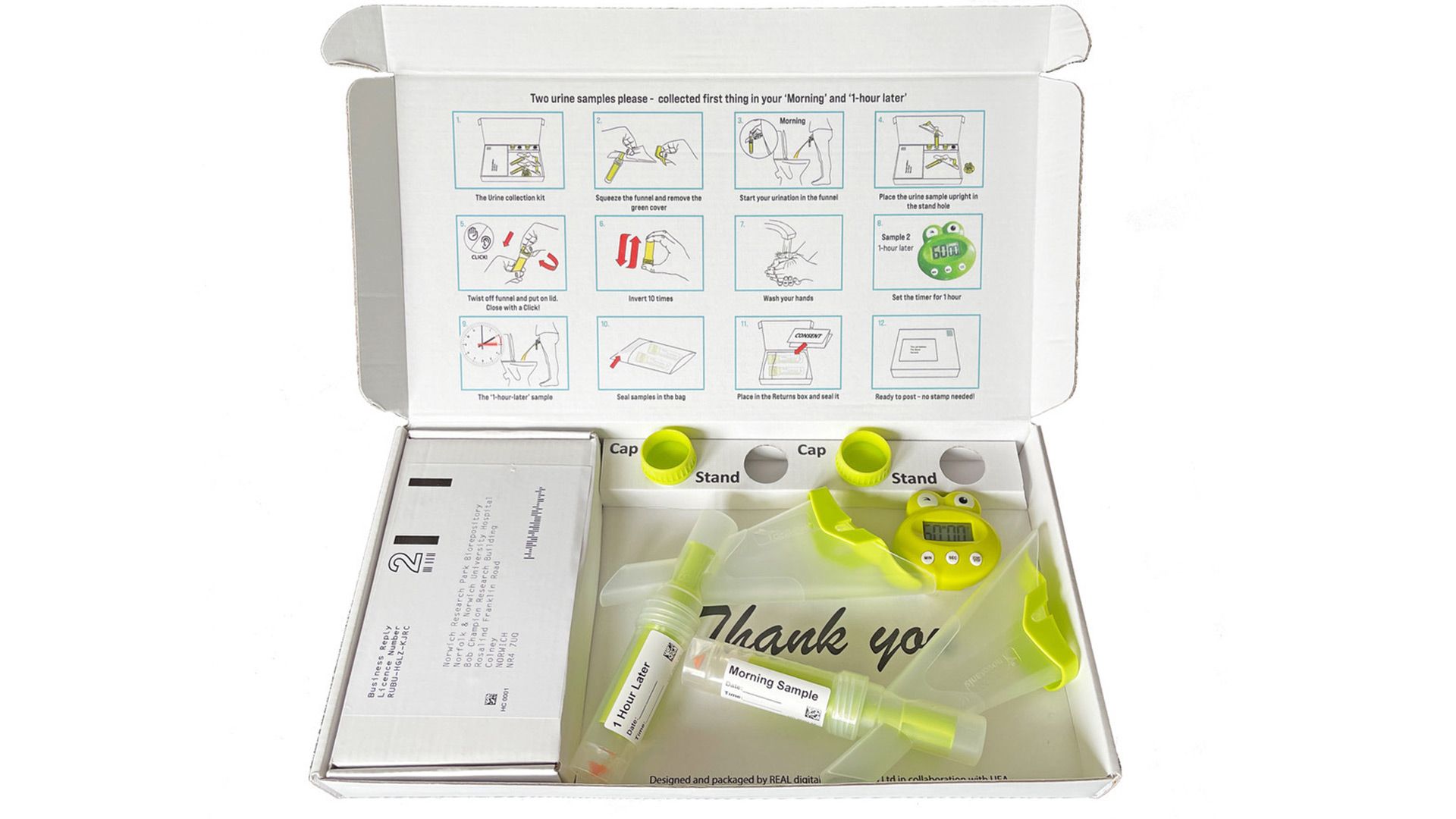


Movember-funded prostate cancer home test kit to be trialled worldwide
Thousands of men worldwide will soon trial a home test kit for prostate cancer – thanks to pioneering research funded by Movember.
The Prostate Urine Risk (PUR) test, which has been developed by a research team from the University of East Anglia in England, helps doctors decide whether men who have already been diagnosed with the disease are likely to need active treatment within the next five years.
The research team hope that it will revolutionise diagnosis of the disease and could be available to men within as little as three years.
The simple kit, called the Prostate Screening Box, has been previously tested on a small group of participants. However, the next phase of the research study it will be rolled out to thousands of men in the UK, Italy, Germany and Canada.
Lead researcher Dr Jeremy Clark, from UEA’s Norwich Medical School, says: “Prostate cancer usually develops slowly, and the majority of cancers will not require treatment in a man’s lifetime.
“It is not a simple matter to predict which tumours will become aggressive, making it hard to decide on treatment for many men.
“We have developed the PUR (Prostate Urine Risk) test, which provides vital information about whether a cancer is aggressive or ‘low risk’."
" The PUR test has great potential to transform the way prostate cancer is managed. "
Men taking part in the trial will be asked to provide two urine samples which are then sent back to the lab for analysis. They will only have to visit the clinic if they have a positive urine result.
Dr Clark adds: “The Prostate Screening Box means that in future, the monitoring of cancer in men could be so much less stressful for them and reduce the number of trips to the hospital.
“A negative test could enable men to only be retested every two to three years, relieving stress to the patient and reducing hospital workload.”
Paul Villanti, executive director of programmes at Movember, said: “The PUR test has great potential to transform the way prostate cancer is managed. Not only can it accurately predict when a man’s disease will become aggressive and require treatment, but it has the added advantage of allowing men to complete it at home.
“We are proud to have supported the development of the PUR test from its early stages as part of our Global Action Plan on Biomarkers, through to this trial involving thousands of men across the world.
“Through our Global Action Plan on active surveillance, we have been able to identify hundreds of men from the UK, Germany, Italy and Canada who are suitable to take part in this trial."
Professor Colin Cooper, professor of cancer genetics at the University of East Anglia says: “The support we have received from Movember has allowed us to make great strides in developing the PUR test.
“There is still much work to do but I’d like to offer my heartfelt thanks to supporters. With their help we are getting one step closer to getting our new tests into doctors’ hands so they can better diagnose men around the world and give them the lifesaving treatments they need.”